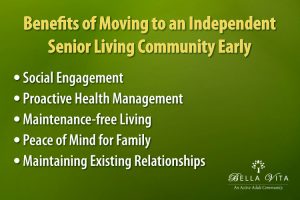
Posted: February 27, 2024
Senior companionship, whether platonic or romantic, enriches our lives and enhances our wellbeing at every stage of life. As we journey through our later years, various factors such as retirement, loss of loved ones, or physical limitations can lead to social isolation. This isolation can have detrimental effects on mental and emotional health. However, senior companionship, whether in the form of friendships or romantic relationships, can be found in various avenues and living environments.
 Seniors have many opportunities to discover companionship and enrich their lives with meaningful connections. Volunteering and community involvement offers numerous opportunities to make new friends. In addition, joining local clubs, participating in group activities such as exercise classes, art workshops, or book clubs can lead to the formation of friendships.
Seniors have many opportunities to discover companionship and enrich their lives with meaningful connections. Volunteering and community involvement offers numerous opportunities to make new friends. In addition, joining local clubs, participating in group activities such as exercise classes, art workshops, or book clubs can lead to the formation of friendships.
Living in an environment where all of these opportunities are at your doorstep, literally, can make finding significant connections engaging and fun without the effort of finding the right interest/hobby groups, travel to and from, and finding people about the same age. Smoothing the path towards finding like-minded friends can make a big difference in the ability to do so. Independent senior living communities offer nurturing environments where seniors can cultivate meaningful relationships, pursue their passions, and embrace the journey of aging with grace and dignity. By considering an early transition to these communities, seniors can enjoy the myriad benefits of communal living while fostering companionship and connection in their golden years.
While the decision to move to an independent senior living community is deeply personal and varies for each individual, there are several benefits to considering an early transition:
Living alone as a senior can be especially isolating. Seniors may face physical limitations or mobility issues that hinder their ability to participate in community activities or social gatherings. Furthermore, the loss of a spouse or close friends can exacerbate feelings of loneliness. Without a support network, seniors living alone may struggle to combat feelings of isolation. Independent 55+ communities can offer an environment that fosters connection.
Whatever path is chosen to create companionship as we age, it is vitally important to our overall well being and can greatly enhance the enjoyment of life in our later years. Senior companionship can even be beneficial to our physical health. Without regular social interaction, seniors may experience feelings of loneliness, depression, and anxiety, leading to a decline in their overall quality of life. Additionally, social isolation has been linked to an increased risk of cognitive decline, cardiovascular disease, and even mortality.
At Bella Vita, living in a 55+ active adult community gives you access to plenty of social events and opportunities to engage, mingle, learn, grow, and make new friends. Our community offers a full calendar of activities keeping aligned with those five pillars and the essence of active adult living. Including book clubs, continuing education courses, exercise classes, community outings, and much more.
As we navigate the later chapters of our lives, let us embrace the joys of companionship, celebrate the bonds we share, and cherish the moments spent in the company of kindred spirits. After all, life’s greatest treasures are found in the warmth of human connection.